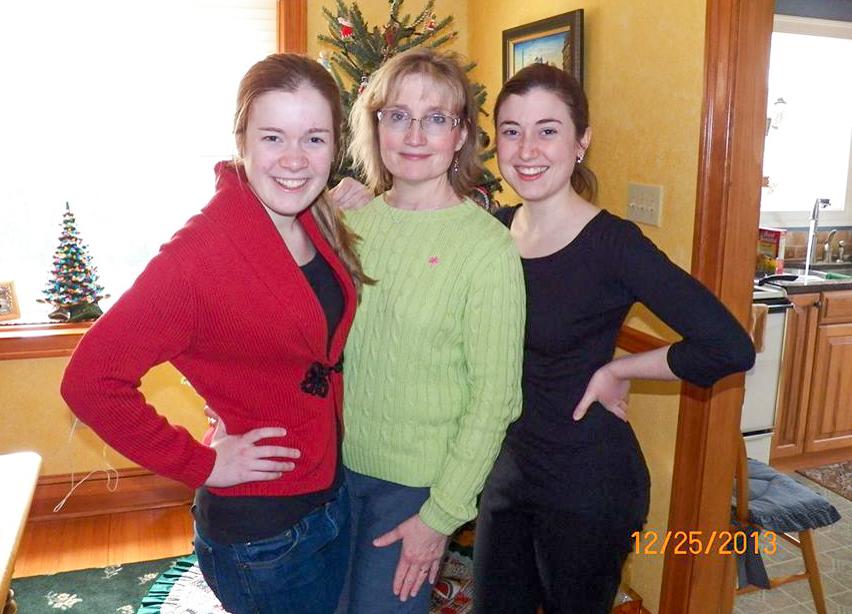A reflection on Women’s History Month and women’s choices
March is Women’s History Month, which was implemented in 1987 by Congress. This can only begin to mean something when you know a woman over the course of your lifetime. The only woman who truly fits that description, for me, is my mother. Over the past 20 years, she has uniquely shaped my own perception of women in society and continues to do so today.
Approximately 78 percent of mothers, with their youngest child between the ages of six and 17, held full time positions in 2015, according to the U.S. Bureau of Statistics. My mother worked while I was growing up. In fact, both of my parents worked full time and managed to raise my sister and I. Additionally, my mother somehow found a way to mother, work, and attend graduate school–which preemptively exemplified my future definition of a strong and ambitious woman. Despite the strenuous nature of her job as a nurse in a cardiology unit, she maintained a positive outlook on life in the caretaking line of work. Currently, she is a nurse practitioner in the palliative care field.
Unfortunately, my perception of my mother wasn’t always as positive as it is now. As adolescence and middle school chipped away at my sense of worth, I grew more judgmental of my mother and her role.
Why did she work? Other mothers volunteered for my school, establishing what appeared to be perfect order to their children’s lives and always making the mark. My childhood perspective made me ask questions I hadn’t before considered: if some mothers worked and others stayed at home, which would I do when I grew older? Would I sacrifice my career for my own children?
By the time I reached high school, these questions remained hidden, but persistent in my mind. During my junior year, my writing reflected these same questions in a paper for AP English titled “A Profound Choice.”
At the age of 15, I dared to take pen to paper and challenge prejudices, between women, that I had never experienced. I still remember the faces of my mother and sister as I spoke about both arguments. They were struck by the ego of a young woman who dipped into the pot to stir it and had never even been a mother. The subtext of these issues was significantly more charged than my 15 year old mind could have imagined: socioeconomic status, matters of identity and how only positions of power offer the freedom of choice. As my mother stared back at me across the kitchen table, in her eyes, she could have been worried that I was judging her for her choices and lifestyle. Except now my judgment would be on paper.
I know my mother sensed my youth. Though my passion was commendable, my ignorance was obvious. She hinted at the missing pieces of my paper, even though I felt justified in my analysis. I failed to understand a saying my mother often refers to: “sometimes you do what you have to do, not what you want to.”
Regardless, the five page paper took the high road arguing: “Whether choosing to work and raise a family or choosing to stay at home, mothers must remember to decide according to what best fits their own circumstances, not what fits the expectations of others.”
I’d like to think these were the words of a young female trailblazer, but if I’m being honest, they were the words of a girl who was only beginning to understand societal problems. The paper I once thought was a manifesto now reads like a two-page pamphlet concerning women’s issues. I seemed to entirely avoid the notion of money. Research reveals that the numbers matter with regards to moms and financial circumstances.
Legal Momentum, which describes itself as “the oldest non-profit legal organization dedicated to advancing the rights of women and girls,” connects women and economic inequality with a wide range of reasons: the wage gap, limited government programs, the cost of childcare and domestic abuse to name a few. The problems the 11.5 million single-mothers in the United States face, mentioned on their web page, include managing the home and the workplace and financing the lives of both themselves and their children.
Maybe if I had spent more time studying women in my own life rather than those in my research, I would have realized the gaps. The reality is that someday I too may grapple with the issues my mother once did: how to manage being a working mother without feeling like any less of a parent. Women continue to balance home and family responsibilities. Even though society has evolved from traditional gender norms, the notion of proper family values are still very much ingrained in our expectations of women as mothers.
Women’s History Month is a reminder that I am a woman and while that does not define me, it gives me definition. Someday, being a mother may do the same.















































